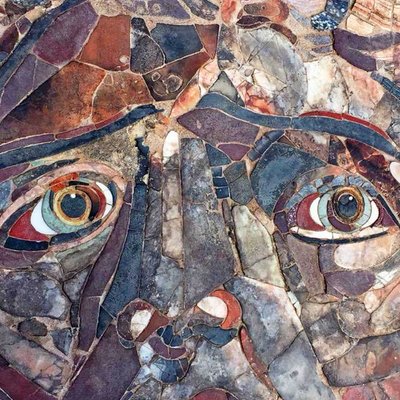I’ve started the CGF some years ago to learn Godot and to provide something to the community. I even made a few FOSS games with it.
Sadly my work with my other FOSS projects and the fediverse doesn’t give me enough time to keep it up to date and to migrate it to Godot 4 and since the engine is picking up a ton of speed, I think it’s a shame people have to keep rediscovering the card game wheel.
I know a lot of people avoid it due to the AGPL3 license, so I am thinking of switching to an MIT license instead in the hopes that others will help carry the torch until I find time to circle back to it. There’s always pitfalls with MIT of course, such as some company trying to enclose it and sell it as a service, but perhaps peer pressure would be enough of a deterrent at this time.
Anyway. Just opening this up for discussion.
MIT may attract more people… but why would that be people who would contribute back in the direct you want? I’ve seen many MIT extentions for Godot, maybe they would have some insight.
Most indie devs make their MIT Godot games proprietary and I doubt peer pressure has ever stopped companies from taking MIT work and making it proprietary before. If software freedom of your users is important then the copyleft aspect is an important way to protect their freedom. Imo, not worth losing that on the off-chance it all goes well.
Those same hypothetical users who take MIT code and don’t contribute back, likely wouldn’t bother using (A)GPL code anyway, so either way they’re not contributing.
Is there much harm in having MIT licensees who don’t contribute?
There are many companies that violate the GPL by not sharing their modified code on redistribution. Eventually they comply on request or lawsuit (in thanks to the Software Freedom Conservancy). It’s not the contribution OP is after (direct project interaction) but I consider getting access to their changes to be °giving back to the community°.
If it’s one dude not contributing back I ain’t that worrried but if it’s a big company then that ain’t good. It’s doing free work which could have been paid for (if not to yourself then to someone else doing the work for pay). Also, I value software freedom so I consider proprietary software to be harmful in of itself.
Fair dos. In general I’m in the camp that proprietary software using open software isn’t as bad as them using exclusively proprietary code, but enforcing has always been pretty hard so I’ve never been one to complain when people do libre-forks of stuff.
That being said, I did see post a while back that was a great example of what’s possible under the best case scenario!
A notable part of Evan Boehs getting Truth Social to be AGPL complaint is that they are not the copyright holder, which gives a lot of hope. An “end user” suing for compliance hasn’t been concluded in court yet (there is one in process SFC vs [edit] Vizio). If that succeeds then perhaps getting compliance will be easier in the future!
Sadly getting compliance also includes them just engineering the non-compliant code out - so they enjoy the use of free software for some time without ever giving back.
I can tell you that I wouldn’t invest my time in developing a game if there’s no chance of selling it in the first place due to the license requirements of a third party package.
Well AGPL doesn’t prevent selling, but most people think it will steal their sales, which I don’t think it’s true.
agpl does not “steal” sales, but i have to give my users the source code under a gpl compatible license, that includes that they redistirbute the code however they see fit.
that scares many people, but i guess they forget that your game is more than code and the license does not cover assets
Correct. Plus I think most people want to support indies, and those who would download forks, would just pirate anyway. Such fears are overblown I think which is why it was AGPL from the start. If I was still actively developing it I would keep it like this, but if MIT helps it get more traction, it might be worth it.
I don’t think end users are the problem.
Anyone looking to make an easy buck can steal your source, flip some assets and sell it as their own.
That is a big vulnerability. Especially to indie Devs who potentially work on razor thin margins already.
While that’s true, a lot of those places do the same thing already, even without available source. Copycat apps are a thing already, but with AGPL3, they would also have to share their source at least.
@Lmaydev @db0 the source is typically the least important part of any game. Games with any amount of success get copied overnight by game farms; no need for code access.
Even more: if I need to copy a game, observing it is enough, I don’t need to deal with the certainly messy original code that I don’t understand well. Rewriting from scratch will certainly be faster than deciphering a 3rd party codebase.The hard part is almost never the code, it’s design, gameplay, graphics, theming…
Game design and gameplay is part of the source. All the balancing etc. to make it a fun experience. Most of the numbers don’t show up in the UI, so they’d either have reverse engineer it or reconstruct it somehow through months of game testing.
For games where the code _is_ the difficult part (Dwarf Fortress, etc), its probably so complicated that having the code helps nothing, unless you want an exact copy (at which point, just pirate the game).
The number of applications or games where having access to the code helps even somewhat to do anything is vanishingly small.
But my shadersssss
Yeah in theory people could buy your GPL/AGPL app from you, but they could also get it legally for free from anybody else who has bought it. Guess which way will dominate.
No they cannot, they have no license to your assets or trademarks. Just code.
I’m not a gamedev, but have you considered LGPL? My understanding is it allows the use of the library in proprietary software, but still requires improvements to the library itself to be released (although without the network requirement)
The problem is that the CGF is not an external library, it’s becomes core part of the game. Also for people who care about this stuff, so long as the “GPL” part is there, they don’t touch it either.
The LGPL is inherently incompatible with anything on Apple’s App Store, so if there’s a chance that I might want to publish it there I can’t touch anything-GPL.
I get what you mean but at face value that sounds like LGPL is the issue, rather than Apple.
Depends on your point of view. Legally it definitely is, because the LGPL stipulates that nobody is allowed to attach any restrictions on to the code above the things the LGPL restricts itself. This makes it impossible to combine with the App Store, because that store adds additional restrictions.
I love the GPL and AGPL, but for all intents and purposes, MIT makes more sense for a game development setting. You don’t want people to realize too pate that your plugin is GPL so they now have to rup it out and make their own, so they don’t have to open source their project…
Thank you for sharing the source in the first place.
I personally prefer projects/libraries with more permissive licenses than AGPL.
In terms of reinventing wheels… you precisely told why people do that: learning an engine. I’d use it to create an offline version of my favourite card games, but also, how to discover others think during game development. Latter for me is also important if I’d like to understand mindset how to create things more effectively.
About support… it’s actually hard to say what do you want to achieve. Making an app, library, a game by yourself? Sharing achieved results with community? Find others who can enjoy to create a game in a team with less requirements as there’s in companies?









